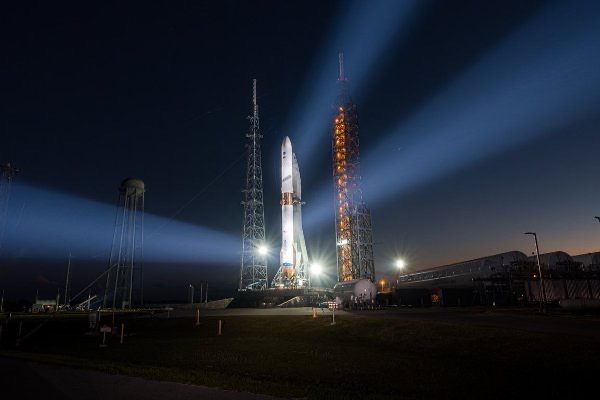Weather Forces Another Delay of Blue Origin’s New Glenn Launch, Disrupting NASA Mission Timeline

Aerospace company Blue Origin, founded by American billionaire Jeff Bezos, originally planned to carry out the second launch mission of its “New Glenn” rocket on the morning of the 9th Eastern Time. However, due to severe weather conditions, the launch has been postponed once again. The delay has drawn significant attention, as it is expected to affect NASA’s progress on its Mars exploration program.
Blue Origin stated that the launch, scheduled to take place at Cape Canaveral, Florida, was suspended due to rainfall and excessive cloud cover over the launch site. Additionally, technical issues occurred within the ground systems. The mission team announced the postponement shortly before the launch window closed and will reassess the next opportunity for liftoff.
The objective of this mission is to send NASA’s “ESCAPADE twin probes” to Mars to further study the planet’s magnetosphere and atmospheric variations, laying the groundwork for future crewed missions. This would also mark the first time the “New Glenn” rocket performs a mission for NASA and was seen as an important step for Blue Origin in challenging Elon Musk’s SpaceX in the competitive launch market.
Standing approximately 98 meters tall, the New Glenn rocket shares design concepts similar to SpaceX’s Falcon series, featuring partially reusable capabilities. Blue Origin hopes to successfully recover the rocket’s first-stage booster during this mission to verify the reliability of its recovery technology. However, during its first test flight in January, the booster failed to land on the Atlantic platform and went missing, making this second attempt a critical milestone for the company’s technical advancement.
The postponement challenges extend beyond weather concerns. Due to the current U.S. government shutdown, the Federal Aviation Administration (FAA) has recently implemented temporary restrictions to reduce the frequency of commercial rocket launches in order to avoid airspace congestion. Analysts worry that the policy could further affect Blue Origin’s flexibility in rescheduling the launch.
Blue Origin CEO Dave Limp previously revealed that the company had planned to complete six to eight missions in 2025, but this delay may further push back its schedule. If the launch and recovery succeed, it would mark a key achievement in reusable rocket technology, laying a foundation for future Mars and deep space missions.
At present, Blue Origin has yet to announce a new launch date, but the company stated it will confirm the next opportunity as soon as weather conditions and FAA permissions allow.
- 112 reads
Human Rights
Fostering a More Humane World: The 28th Eurasian Economic Summi

Conscience, Hope, and Action: Keys to Global Peace and Sustainability

Ringing FOWPAL’s Peace Bell for the World:Nobel Peace Prize Laureates’ Visions and Actions

Protecting the World’s Cultural Diversity for a Sustainable Future

Puppet Show I International Friendship Day 2020

